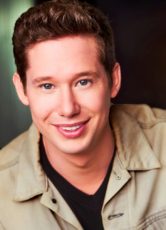
Steven Pressfield’s book Turning Pro directs those of us who are stuck in amateur habits to consciously adopt a professional work ethic. Turning pro, he argues, is imperative to overcome “Resistance with a capital ‘R.’”
Resistance is the term he uses to describe the relentless force that’s determined to distract and indeed stop us from the important work it takes to achieve our dreams. Here are several distinctions the author draws between the habits of amateurs and professionals.
First of all, the writer argues that the amateur waits around for fear of failure or rejection to disappear before starting the necessary work. Conversely, the professional takes action despite being afraid with the understanding that fear will always be present.
Amateurs allow Resistance to distract them from their workflow, giving in to urges to play video games, check social media, watch TV, stay up too late at night–the list goes on. Worse, amateurs allow self-destructive behaviors to pull them away from their most cherished endeavors. These self-sabotaging habits can take the form of addictions to alcohol or drugs as well as compulsive overeating.
On the other hand, professionals refuse to tolerate such anxiety-ridden behaviors because they won’t allow anything to interfere with their work. They channel any negative behaviors into beneficial habits like getting enough sleep to improve their energy level and reading books to improve their skills.
Pressfield says, “The professional knows that the mundane physical act of sitting down and starting to work sets in motion a mysterious process that produces inspiration. The amateur waits for inspiration; the professional knows that it will come after he starts.” He refers to this inspiration as a “muse” that appears when people take their work seriously and he believes it helps in accomplishing an endeavor.
While amateurs yearn for stardom and fortune, professionals view success as a byproduct of work and give their best effort regardless of a reward at the end. They accept criticism but don’t take it personally. They periodically step back to honestly assess the work, take notes on how to improve, and then keep moving forward with this new knowledge.
Even when experiencing defeat, the pro still considers it better to have taken the risk of putting him or herself out there than not to have risked at all.
And if professionals do achieve fame or fortune, they aren’t seduced into believing they’ve “made it,” which on some level could make them believe their work is completed. In addition, the pro doesn’t romanticize the idea of not making money while pursuing art; rather, the pro regards money as a tool to ensure more work can be done in the future.
Pressfield warns us that a person who is professional one day can turn around and be an amateur the next day. That’s because turning pro is very hard to do. It takes people out of their comfort zones and requires a constant struggle to persist albeit with purpose. It’s about blood, sweat, and tears.
Ultimately, turning pro is about following what’s in your heart. The reward is finishing the endeavor despite all the Resistance that tried to stop you along the way. When you turn pro you find your power, voice, and self-respect.
Want to get your acting career started? Sign up or login to Casting Frontier and start auditioning today!
You may also like:
- The Importance of Acting Training and Education
- Acting Headshot Tips and Acting Resume Tips
- Understanding and Mastering the Business Side of Acting




